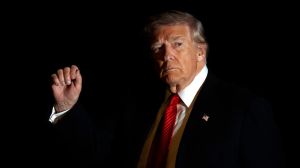Should Terri live?
The case of Terri Schiavo has convulsed America into debates on faith and science and on the structure of its federal system of laws and gov...

The case of Terri Schiavo has convulsed America into debates on faith and science and on the structure of its federal system of laws and governance. And given the webcasts from her hospice bedside, deeper implications for how we define life and the will to live are already sparking off discussion elsewhere. Schiavo, now 41, slipped into coma fifteen years ago, when her heart stopped beating briefly causing what doctors have confirmed many times is permanent and extensive brain damage. In this unresponsive state, she has divided her family and her country. Joined by her parents, a most resolute Republican politico-legal team is invoking commitment to the 8220;culture of life8221; and arguing that no amount of medical opinion can justify removing her feeding tube. Her husband, citing Schiavo8217;s desire to die with dignity, last week won a long-fought legal battle, when a state court ruled that medical appraisal gave no reason to believe that recovery was possible. In a rare move, thereupon, the US Congress and President Bush returned to work on Sunday, to enable the case to move to a federal court.
At a time when a case for mercy killing is being made around the world, Schiavo8217;s case would appear strikingly relevant. But clubbing them would be erroneous. Schiavo, on medical opinion, has no chance of recovery from her 8220;vegetative8221; state; and no move is being made to take her life. Certainly, there are questions about the point at which life support systems can be withdrawn. But answers are in this case being sought on medical grounds, not subjective ones. Allowing a loved one to die with dignity is a difficult decision for families to take. The alarming aspect then is not just, as American observers note, the spectacle of the highest legislature and executive swinging into that process of decision-making. It is the idea of the leadership of the world8217;s only superpower placing faith so wholesomely above science that must make us pause.
Invocation of exceptionalism by the US often irritates. But America does play an exceptional role today in scientific and medical inquiry, a role that benefits the rest of the world in myriad ways. So, when an administration uses a comatose woman to affirm its distrust of science 8212; evidenced already in its repudiation of Darwinian theories of evolution and strictures against stemcell research 8212; the rest of us must know, we are in a bit of a crisis.
- 01
- 02
- 03
- 04
- 05































